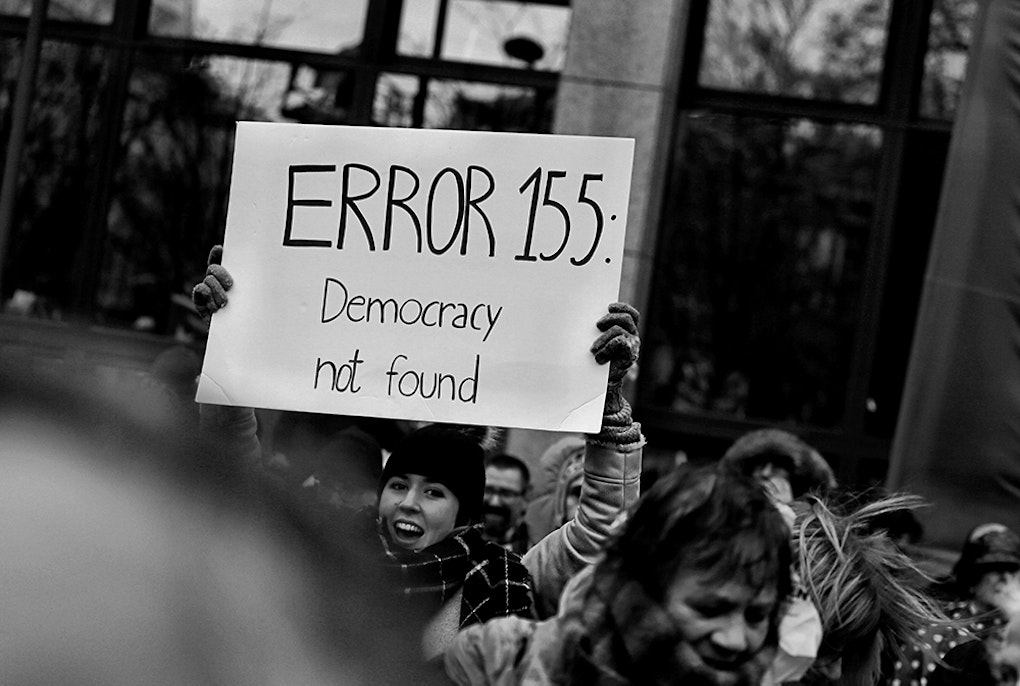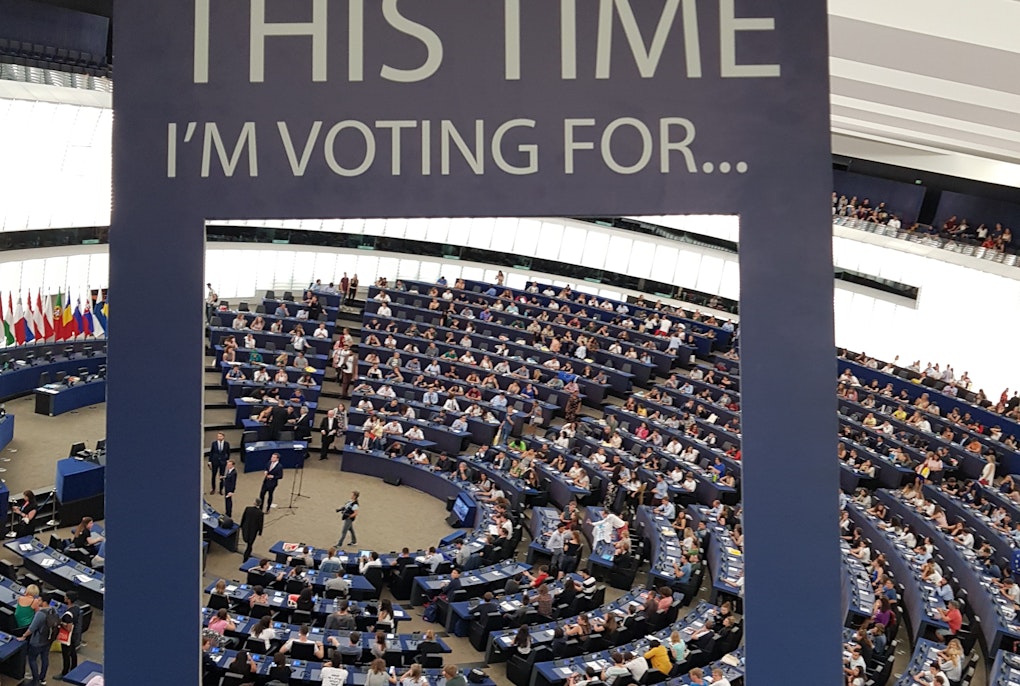
Spain faces the abyss

When the President of the Spanish government, Pedro Sánchez, called a surprise general election after the poor results of the Socialist Party in the local and regional elections last May, many thought it was a mistake. A desperate move in an attempt to minimize an electoral defeat that would bring the government in Madrid a coalition between the center right of the People’s Party and the radical right of Vox. However, the results showed the wisdom of his decision, which will probably allow him to continue in La Moncloa.
After a rollercoaster campaign, marked by the lingering effects of electoral pacts between the PP and Vox in several Autonomous Communities, Sánchez once again demonstrated his capacity for resurgence, defying expectations of his being written off entirely. The People’s Party emerged victorious, securing 33% of the votes and 137 seats, but falling short of the absolute majority's 176 seats, even when combined with the 33 seats won by Vox (12.39%). The Socialist Party, with almost 32% of the vote and 121 seats, not only defied poll predictions but also improved upon its 2019 results. Additionally, Sumar, the left-wing coalition, which is the successor of Podemos, obtained 31 seats (12.30%). Various nationalist and pro-independence formations from Catalonia, the Basque Country, and Galicia, whose votes will prove decisive in shaping the government's direction, complete the parliamentary composition.
Although the election night provided us with several conclusions, the future remains uncertain. The first one is that the People’s Party victory can only be seen as a pyrrhic one, as it falls short of being a true triumph. Despite gaining 48 seats and winning its second general election since 2015, the party fails to achieve its goal of governing either on its own or with the support of Vox. The radical right was also among the night’s major losers, experiencing a setback of 19 seats and becoming essentially irrelevant. It appears that Spaniards have rejected the possibility of Vox, the radical right party, being part of the government. Paradoxically, Vox has inadvertently become the biggest “ally” of the Socialist Party. Its radicalism and theatrics not only mobilized the left-wing electorate but also repelled moderate voters, preventing the People’s Party from positioning itself as a viable alternative government.
The fear of Vox appears to have been the primary driver behind the strategic voting for the Socialist Party, particularly in the Basque Country and Catalonia. In Catalonia, which played a crucial role in the final result, the Socialist Party achieved a significant majority, attracting a considerable portion of its nationalist and pro-independence allies. Once again, Sánchez demonstrated his ability to persevere, despite having a party that lacked strong mobilization. Throughout the campaign, only the former President Zapatero stood as an unwavering supporter, carrying much of the campaign’s weight. By skillfully tapping into the concerns over Vox’s radicalism, the Socialist Party successfully garnered support from voters who wanted to prevent the radical right from gaining influence. This strategic voting played a pivotal role in securing a substantial victory for the Socialist Party in Catalonia. Despite internal challenges and a lack of extensive party mobilization, Sánchez’s resilience and political acumen allowed him to navigate the election landscape effectively. His ability to adapt to changing circumstances and capitalize on prevailing fears proved crucial in securing the party’s success in key areas. However, the political future remains uncertain, and further challenges lie ahead for the newly formed government.
Despite internal struggles and possible losses of supporters to the Socialist Party, it is remarkable that Sumar, has continued to be a decisive actor at the time of the formation of a coalition government with Sánchez. The nationalist and pro-independence formations in the Basque Country maintain their results, while in Catalonia both ERC and Junts have fallen back notably due to the disillusionment with the pro-independence process and the useful vote towards the Socialist Party.
Indeed, the success of Sumar is worth noting, as it managed to overcome internal struggles and potential defections towards the Socialist Party. Despite these challenges, Sumar remained a crucial player in the formation of a coalition government with Sánchez. Its ability to maintain its position as a significant political force showcases the resilience and cohesion within the left-wing coalition, making it an influential factor in forming the government. In the Basque Country, nationalist and pro-independence parties have managed to sustain their electoral performance, with Bildu, the successor to the political wing of the defunct terrorist group ETA, achieving a tie with the Basque Nationalist Party. However, in Catalonia, both ERC and Junts have experienced notable setbacks due to disillusionment with the pro-independence process. Additionally, the strategic voting towards the Socialist Party played a role in these parties’ diminished performance. This indicates that some voters chose to prioritize preventing the radical right from gaining influence over supporting pro-independence parties in this election. Overall, the election results reflect a complex and dynamic political landscape, where various factors, including the fear of Vox and disillusionment with certain processes, have influenced voter decisions. As the coalition government takes shape, it will face the task of addressing diverse interests and navigating the intricacies of governing effectively.
Indeed, Spain finds itself facing the challenge of forming a viable government due to the lack of a clear majority for the right-wing parties. The possibility of repeating elections, which occurred in both 2016 and 2019, looms large if a stable governing coalition cannot be established. Given the polarization of Spanish politics, a grand coalition between the People’s Party and the Socialist Party seems unlikely, leaving Sánchez as the most feasible candidate for forming a government. However, his success in doing so relies on securing the favorable votes of various potential partners, which include pro-independence and nationalist formations from Galicia, the Basque Country, and Catalonia. Each of these parties has distinct interests and priorities, and they are unlikely to offer their support easily or without significant concessions. The complexity of the situation is further compounded by the upcoming regional elections in these three communities, which could influence the decision-making of the regional parties involved. Tacticism and personal interests may come into play, making the negotiation process even more challenging. Any agreement with these regional parties is likely to have far-reaching consequences for Spain’s territorial system. The counterparts required for support may demand substantial concessions, such as the creation of an autonomous pension system in the Basque Country or the transfer of greater competences to Catalonia. The path to a stable government appears intricate and will demand delicate negotiations to navigate the diverse interests and demands of the various regional parties. The uncertainty surrounding the formation of a government adds to the complexity of Spain’s political landscape, and the outcome will have significant implications for the country’s future governance and territorial structure.
The situation is further complicated by the need for the support (or at least abstention if regionalists from the Canary Islands decide to join forces with Sánchez and break their alliance with the PP) of Junts in order for Sánchez to secure a viable investiture. Junts, led by the former Catalan president Carles Puigdemont, has campaigned on a platform advocating for the blockade of Spanish institutions and calling for amnesty for pro-independence leaders. It’s worth noting that some of these leaders have already been pardoned, with the exception of those who are still in exile in Belgium and have yet to face trial. Additionally, Junts supports the idea of holding a referendum on independence for Catalonia. These demands pose significant challenges as they are in direct conflict with the Spanish Constitution, which views Spain as indivisible, but Sánchez has already shown his ability to reach agreements that seemed unlikely.
However, even if Sánchez is elected President, he will have to contend with a Senate controlled by an absolute majority of the People’s Party. This situation could potentially lead to delays in the approval of regulations and make it challenging for him to govern effectively.
In any case, Spain is currently heading towards a precarious situation from which it may be difficult to find a way out. The prospect of a weak government vulnerable to the "parliamentary (and budgetary) blackmail" of pro-independence groups is a concerning possibility. These groups are likely to demand significant concessions in exchange for their support, potentially undermining the stability and effectiveness of the government. Alternatively, an uncertain and risky scenario of holding new elections looms on the horizon. However, neither alternative seems advantageous for Spain's future.

Citation
This content is licensed under a Creative Commons Attribution 4.0 International license.



